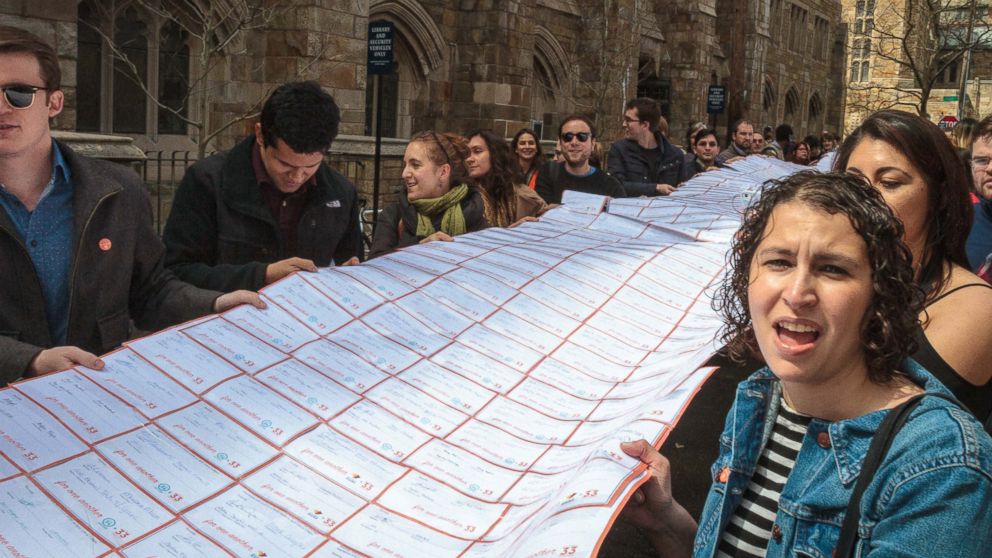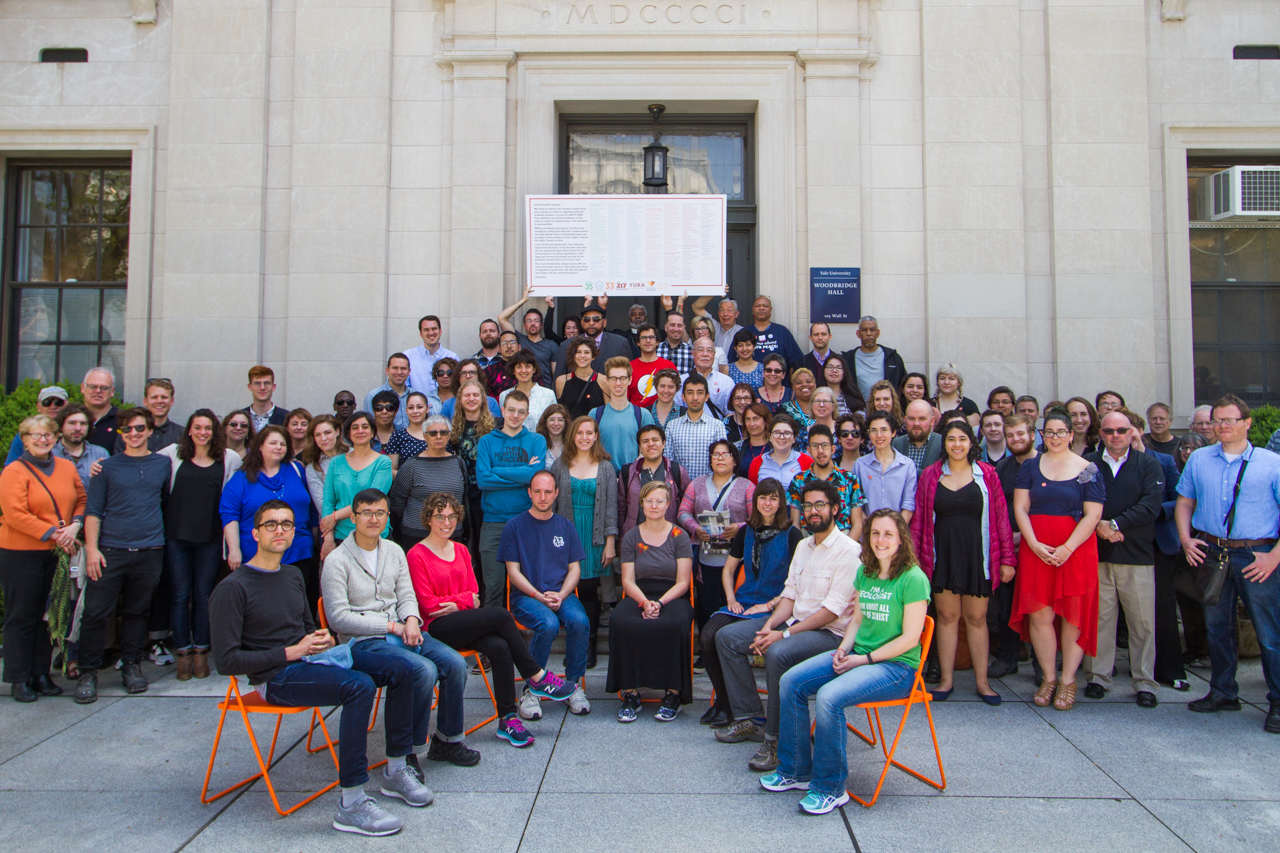Student teachers at Yale on 'indefinite' hunger strike
Two protesters want better union protection after allegedly being harassed.

— -- Eight graduate student teachers at Yale University have been on hunger strike since last Tuesday in an effort to push a collective bargaining agreement with the university forward.
The protesters, including four men and four women who are part of the new Local 33-Unite Here union, say that their fast is indefinite or until the school’s administration agrees to discuss an agreement with the eight departments that joined the union. They say they have only consumed water.

"I’m pretty hungry, and I’m tired most of the time," Charles Decker told ABC News, a graduate teacher for Yale’s Political Science department and one of the eight fasting. "But one thing that has kept my spirit up is the steady unyielding flood of support."
Yale University President Peter Salovey said in a statement, “My primary concern is for the health and safety of our students. While I deeply respect their right to freedom of speech and expression, I urge our graduate students to reconsider this decision and to avoid actions that could be harmful to their well-being."
On April 12 and April 25, Local 33 filed to begin negotiations with Yale and the university refused, according to a spokeswoman with the union.
The university said in a statement that "this action is unwarranted by the circumstances" and that Local 33's "micro-unit strategy" of holding elections in individual departments is unusual compared to other universities and led to a low voter turnout of approximately 9 percent.
The university has asked the National Labor Relations Board (NLRB) to look into the protests and Local 33's individual department strategy, which it calls "exclusionary."
Decker told ABC News that local clergy, government, and many within the Yale community have been supportive of Local 33's protest at Yale, including Connecticut Congresswoman Rosa DeLauro and Senator Richard Blumenthal.
He says one of the points they want to discuss is having more graduate students of color and asking the university to recruit and maintain faculty of color.
Decker's colleagues in other departments that joined the union say they are also fighting to make the campus a safer place for women. More than 50 percent of graduate women at Yale have reported being sexually harassed on campus, according to a 2015 study by Yale University and the Association of American Universities.

Currently, graduate student teachers receive a stipend of $30,000 or more, grants or fellowships for the full $39,800 tuition and access to primary medical care. However, the students on strike say the medical plan makes it very difficult to access mental health care.
Yale released a statement on April 27 saying that the school “provides unsurpassed support” to doctoral students. Over a student’s entire doctorate program, it continues, the school’s cost per student is nearly $375,000 for a single doctoral student and more than $445,000, for students with families.
The statement also said that "if a student has a spouse, but no dependent children, Yale pays half the cost of the spouse’s health insurance. If a student has a spouse and children, the university covers the full cost of their health insurance."
Decker says that there is almost no access to adequate mental health care, and in his experience it has taken months before he was seen by a healthcare professional due to Yale's low coverage. He also says that with pay cuts from last year that he believes even the most experienced teachers are not being paid equally for their work.

Several processions have occurred on Yale’s campus since February 23, when the graduate student teachers from eight departments at the school voted in favor of forming the new union, Local 33, through the NLRB.
Yale says it currently has five-year contracts with their Local 34 and Local 35 unions for their clerical, service, and maintenance employees.
This "indefinite" fast comes about three weeks before the Ivy League school’s graduation.




